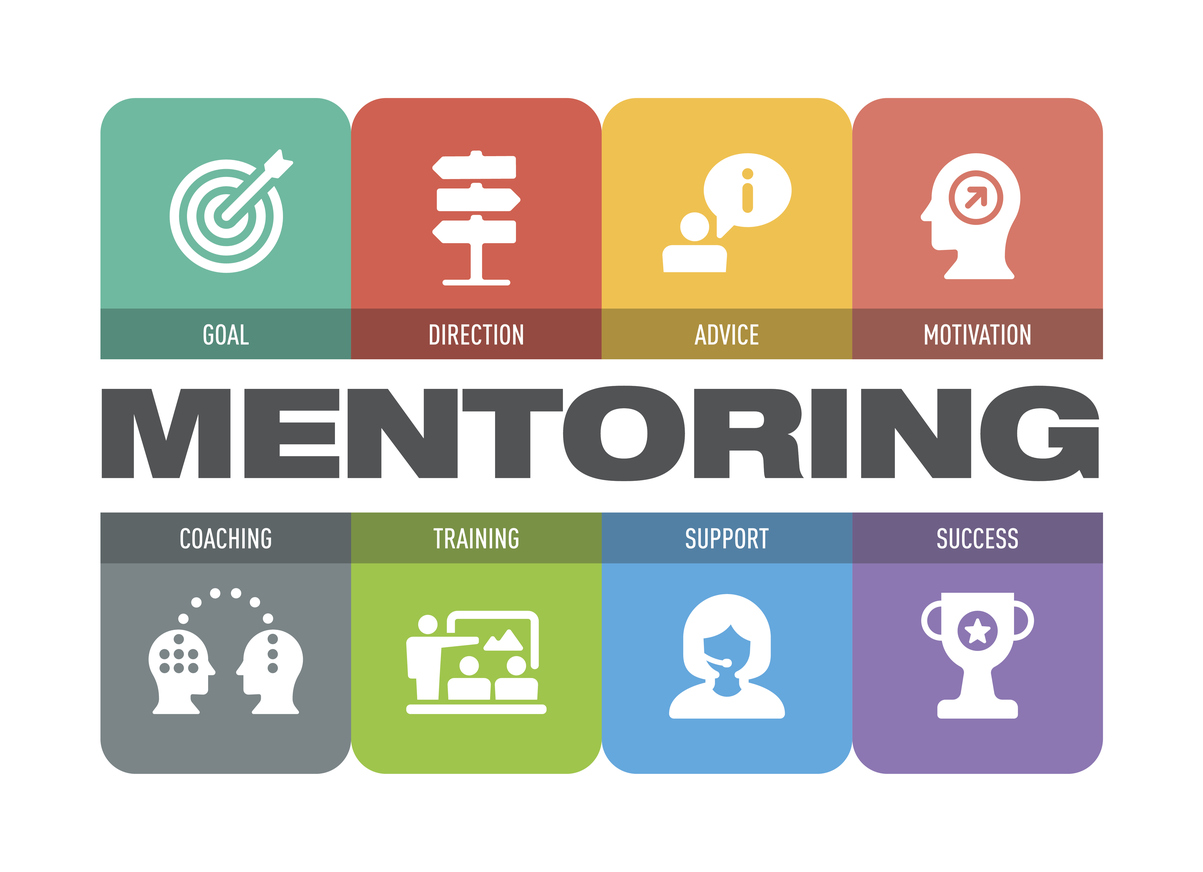No matter one’s industry, educational background, the rungs they’ve climbed, or their ambitious 5-year-plan, all businesspersons come across career questions and crossroads, that they can’t address with certainty on their own. In our personal and professional lives, we’ve all timidly sought guidance from those with experience and our respect. It’s unavoidable that at some point, you will have to bend the ear of a leader you admire in hopes of applying their counsel in the achieving of your aspirations.
The first mentor you encountered that saw potential in you, or who observed their younger self in your trajectory, helped you navigate your course to the degree that will never show up on paper. Whether it’s their time, resources, priceless feedback, recommendations, the way they communicated to you that others couldn’t, your mentor gave you the confidence to unlock a wealth of possibilities in you.
Becoming a mentor in the corporate environment is becoming a trustworthy cicerone for eager career cadets. While mentorship can feel like another obligation, in an endless cycle of commitments and clients, the rewards are invaluable. The mentoring process can take on a lot of different shapes and comes with varying levels of involvement. It can be a long-term partnership, or it can be a temporary transitional conversation.
What’s conclusively valid in every case of becoming a mentor is that it’s a worthwhile pursuit that enriches not only the mentee’s life but also yours. You could also learn a thing or two. Your mentee is on the frontlines of an ever-evolving business landscape. Once in a while, old dogs can be taught new tricks from upstart pups.
Here are some tips to maximize your experience as a first-time mentor.
Be clear on expectations from the start. Not just in terms of scheduling, but on what they hope to gain from your sessions? Ask them what led their path to you? How is success defined?
Understand all aspects of the mentee’s life and what influences their decision-making processes. Who are their close colleagues, supervisors, significant others? Find out your mentoree’s goals on the grander scale before committing to sorting out the puzzles in front of them. Any advice you’ll dish should always lead them to the light on their career horizons in keeping with those that are in front of them.
Be their sounding board in addition to their provider of expertise. After establishing a report, being an open party to their business strategies or developing plans, will empower the mentee to be more confident in their ideas, knowing you’re listening. While you aren’t the direct target of the pitch, your feedback and inquiries will aide in their future delivery. They value your opinions. If your partnership is clicking, they will come to appreciate the questions you ask.
Steer clear of any assumptions. You may have a grasp on their work style, vision, and track, but you may not understand the context of what led them there. Familiar hypotheses and stereotyping your mentee based on inexperience, maturity, their impatience, or industry does a disservice to both of you. Ask questions that will help all involved have a clearer understanding of how behavior dictated actions.
Praise their accomplishments every step of the way. The mentee will often come to you from a place of error and negativity. It’s imperative to laud their achievements so that a balance is maintained. Be gracious to them as they’ll pass on most opportunities to be kind to themselves.
Don’t lose sight that this ultimately isn’t about you. While it’s true that a would-be protege sought out your direction, they aren’t acting on your behalf. Your professional missteps and wisdom to avoid them will lend perspective to your mentee on your origin story; all things won’t be equal if they come across similar circumstances.
Share your failures and missteps. Admittance of mistakes will create an environment where the mentee can be forthcoming with their lapses. The lessons they’ll take with them will assist in future problem-solving and avoidance of the same miscalculations in similar scenarios.

There’s no power dynamic in your relationship; it’s a partnership. Your mentee may perceive you as the one in charge. Both parties have a vested interest that the mentee realizes their full capabilities. Stay supportive and on an even footing.
Mentor mentee ties, come with an unspoken counsel-client confidentiality agreement. There may be instances where your greenhorn opens up and allows themselves to be vulnerable concerning specific issues. Nurturing that trust and creating a safe space is essential. That’s not to say there aren’t occurrences where you shouldn’t loop in, appropriate channels for work-related matters. Just use your best judgment and err on the side of privacy.
Get to know your mentee on a personal level and become their champion, they, in turn, will do the same, and both of you will be engaged in a fulfilling fellowship.


